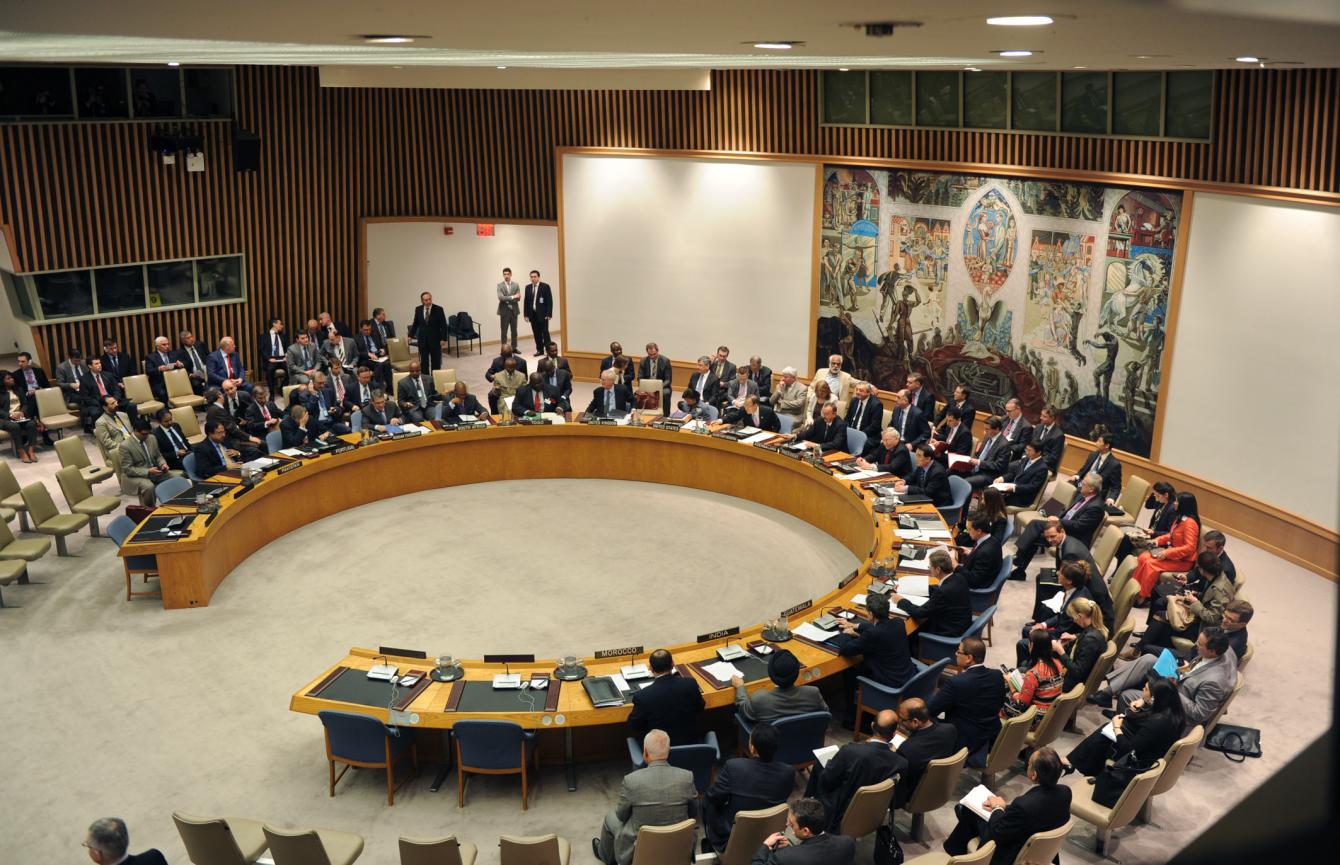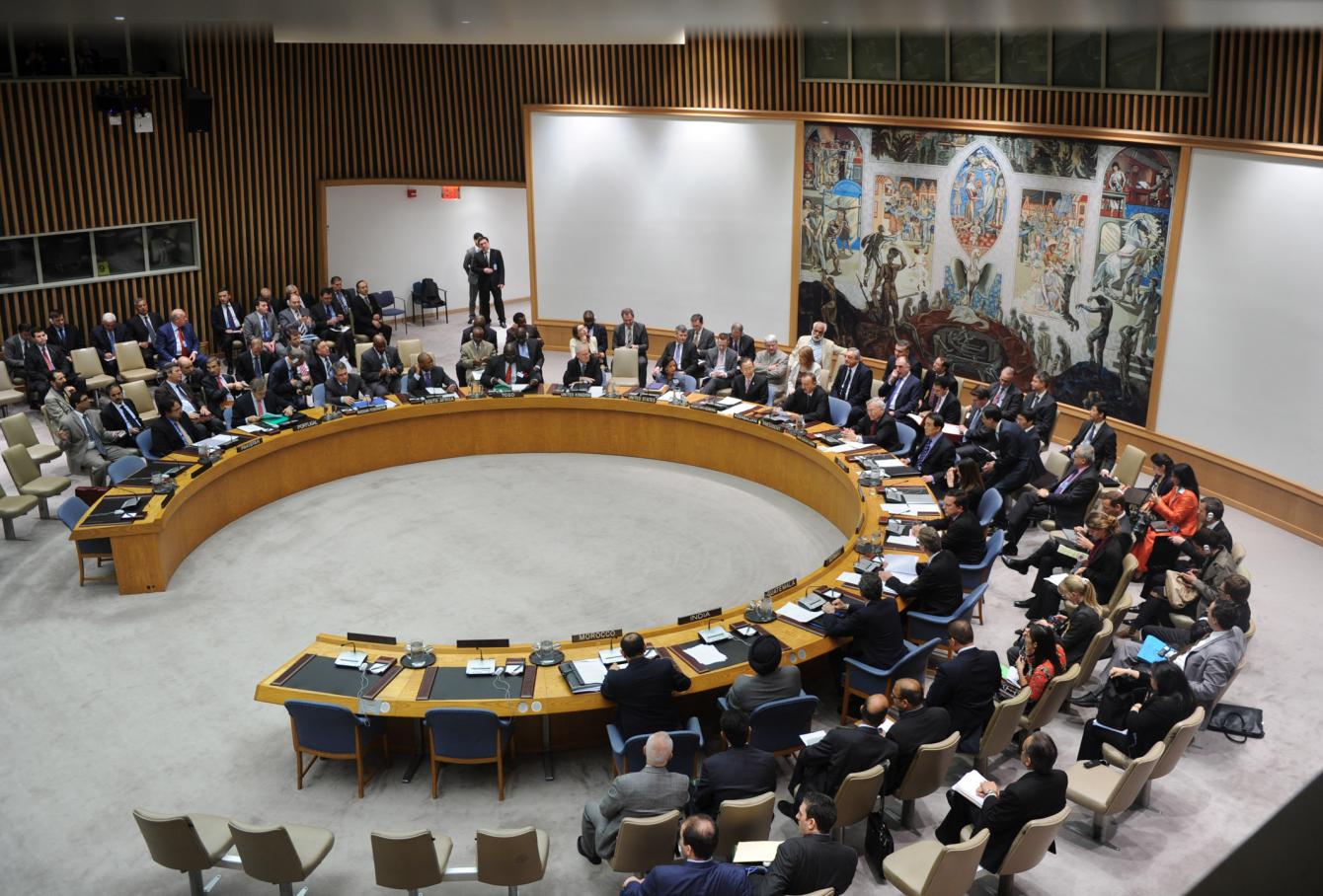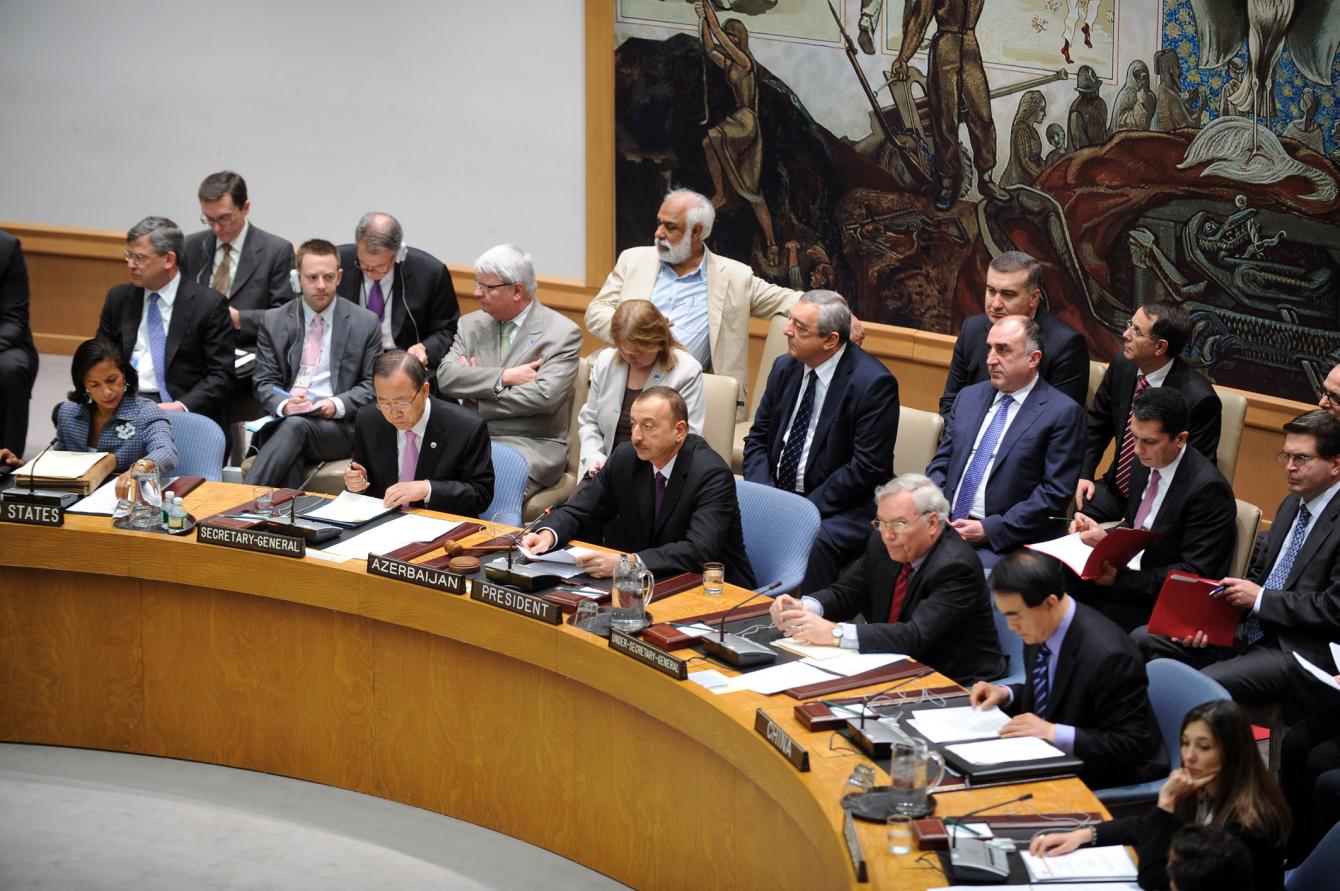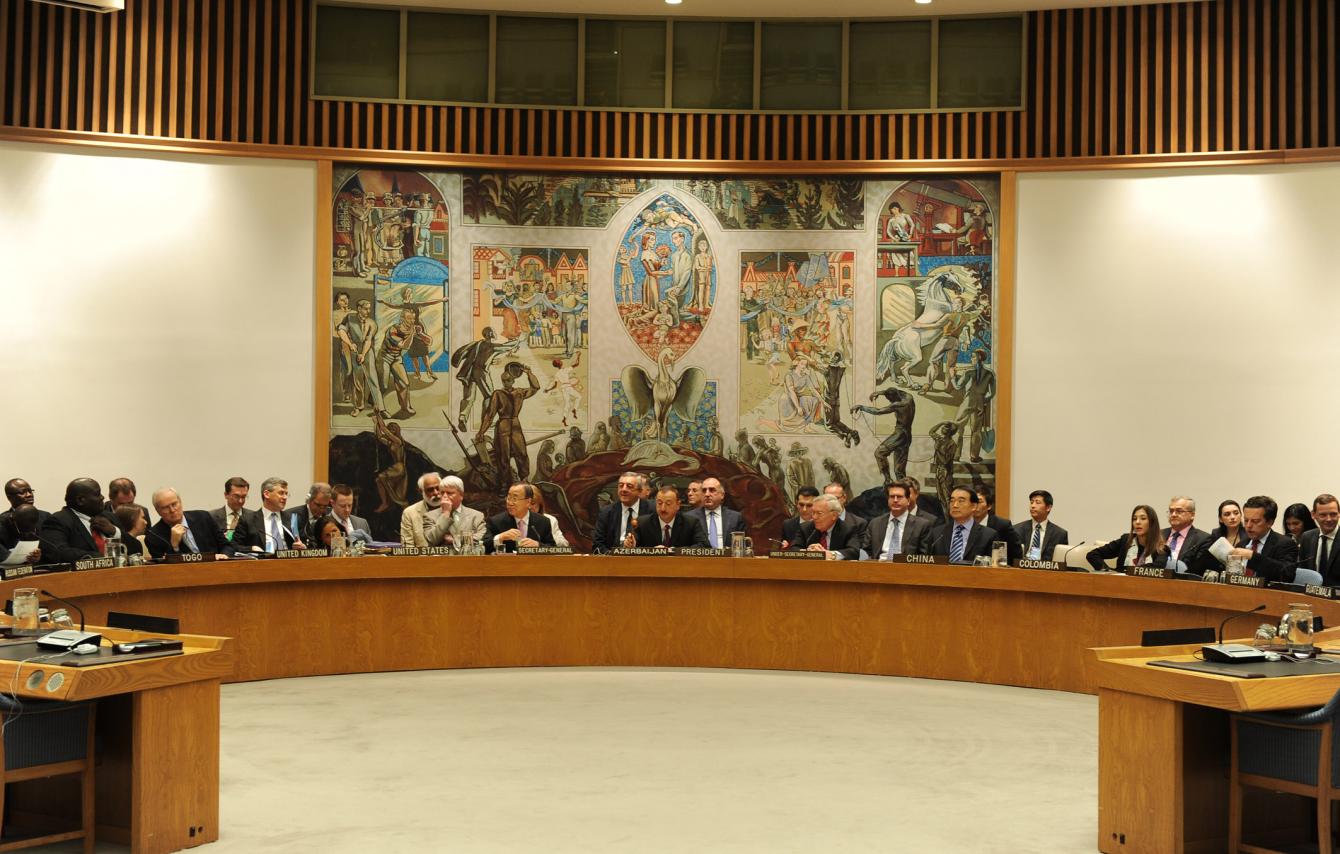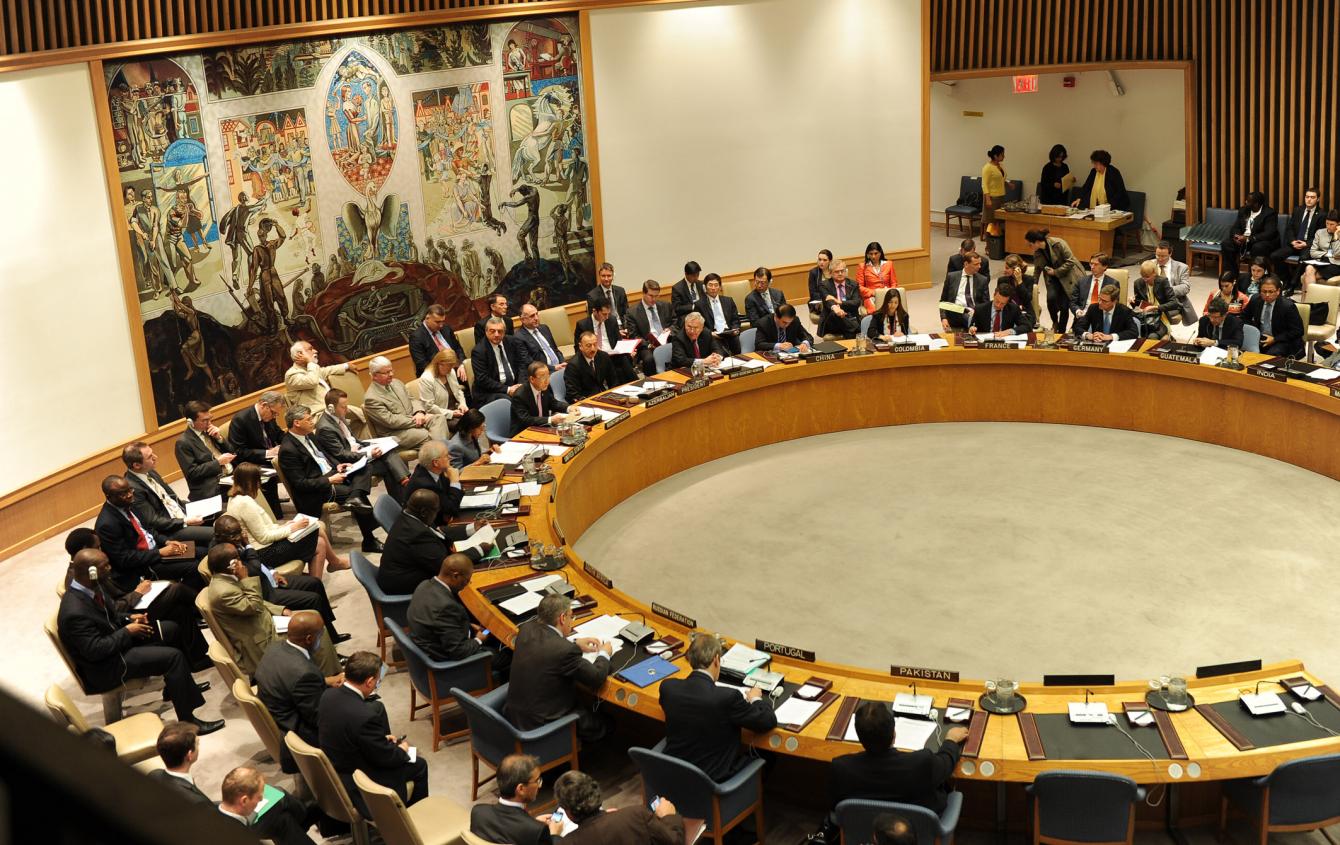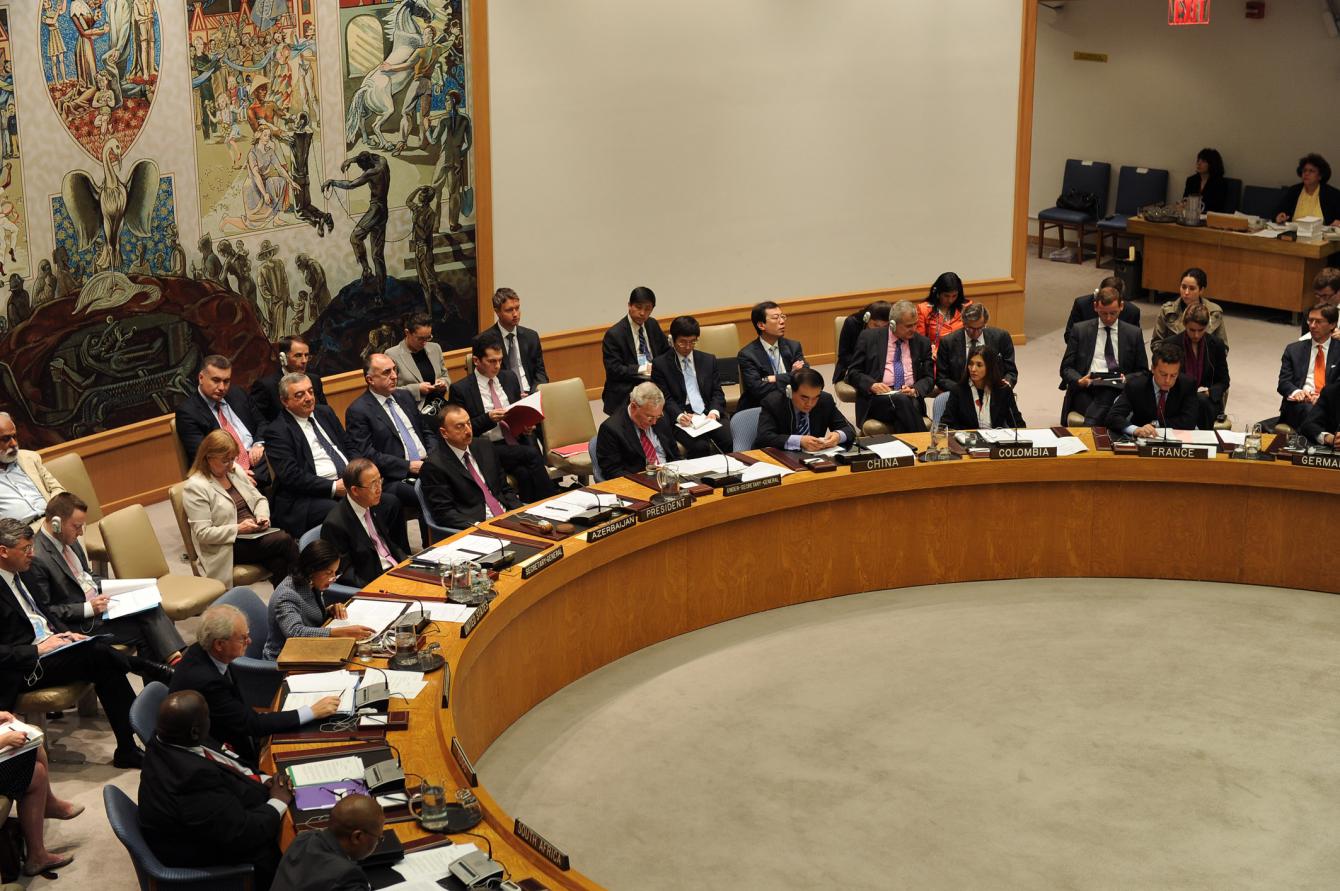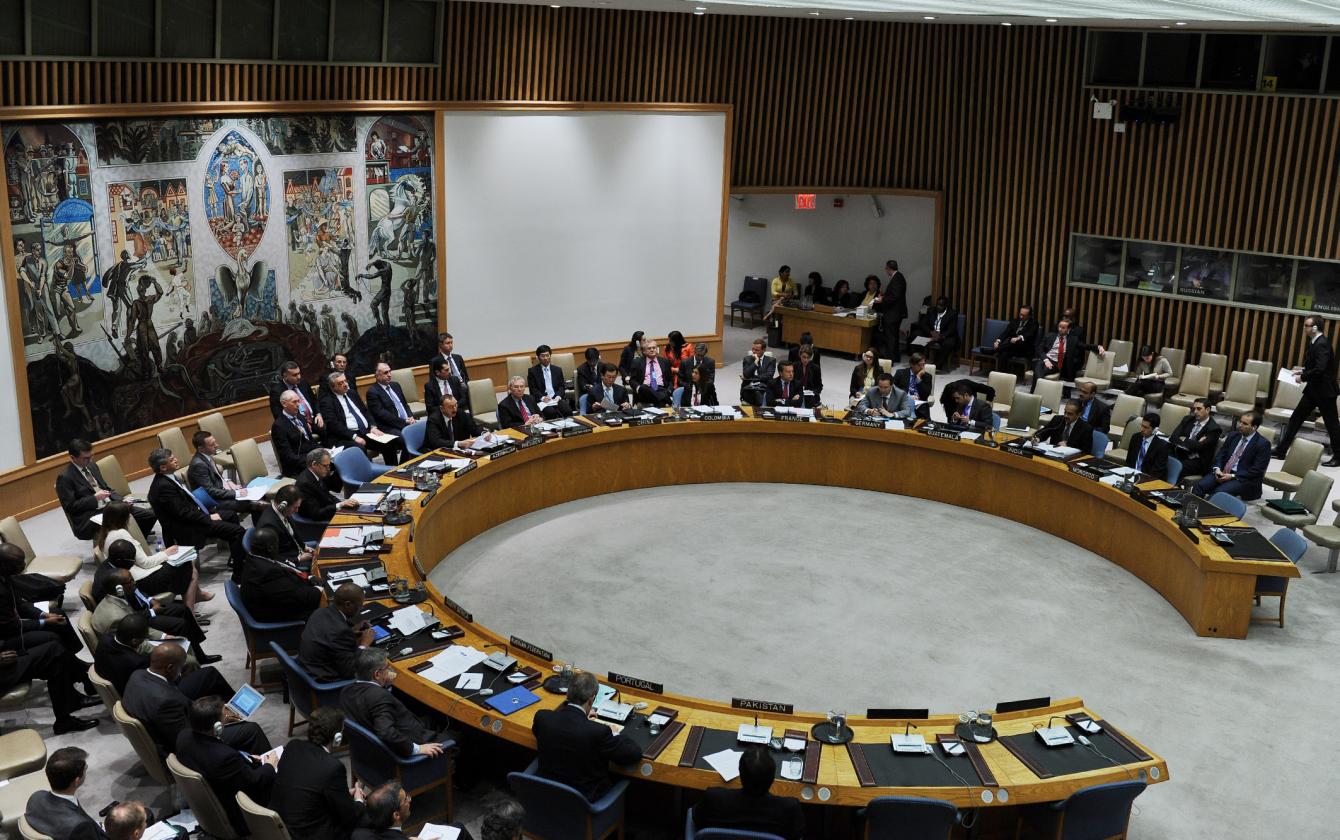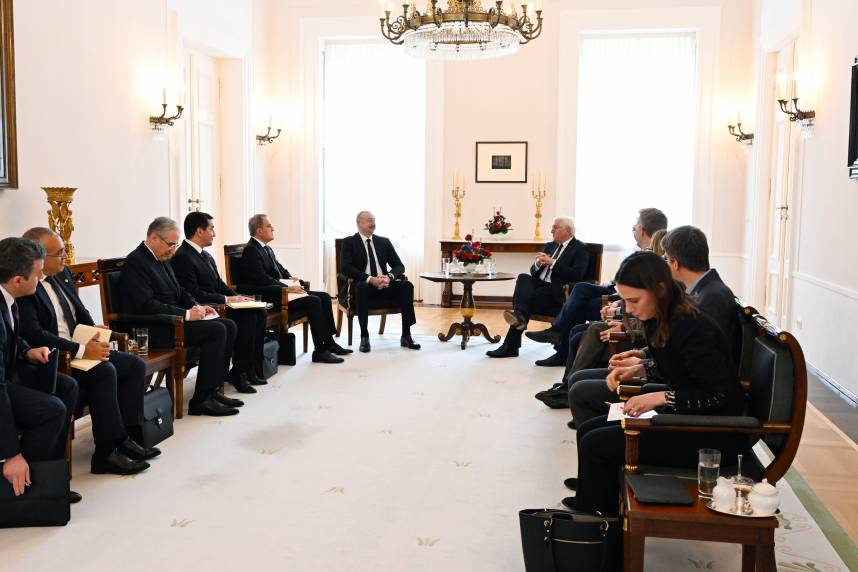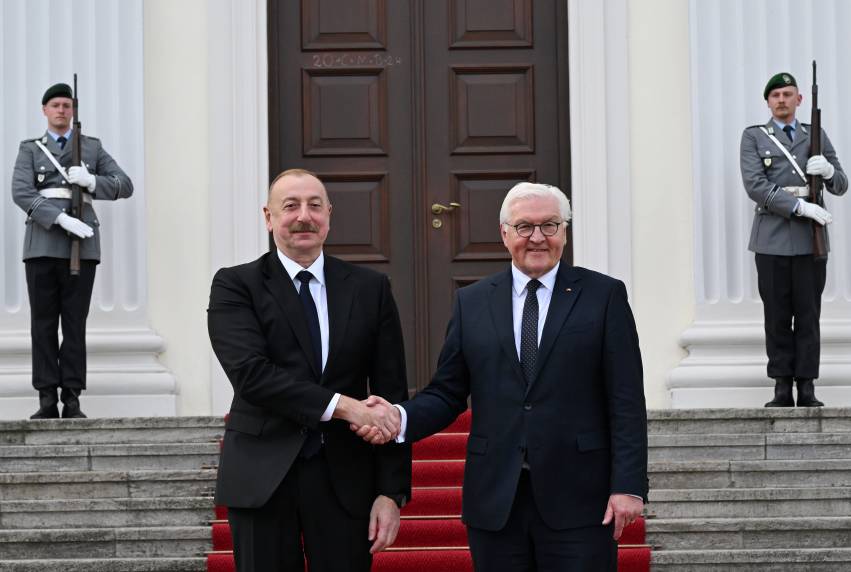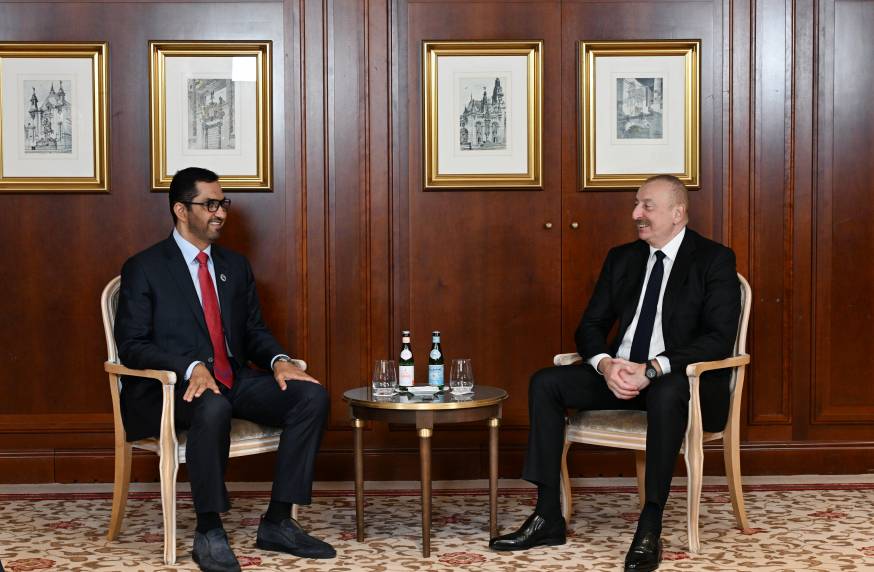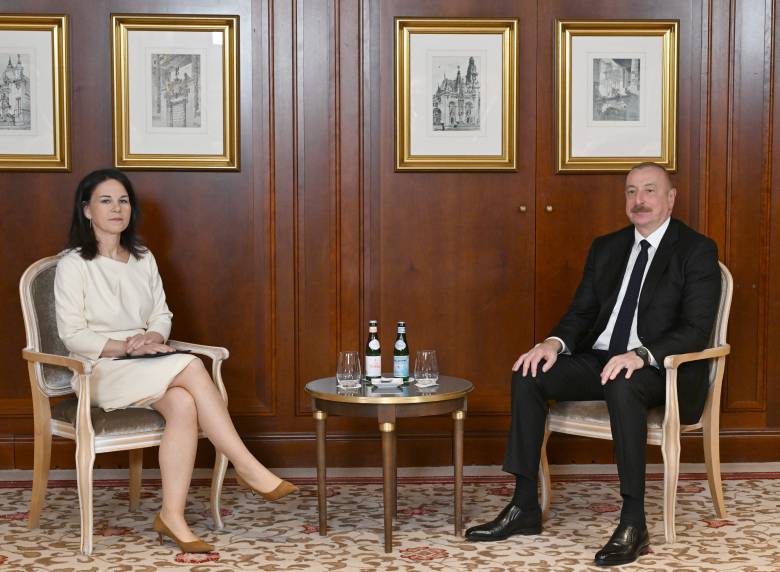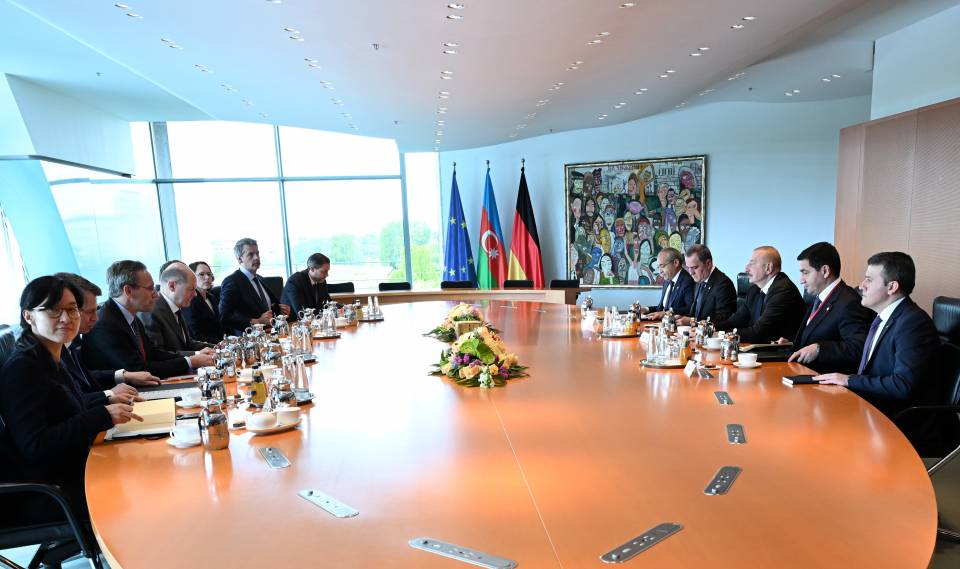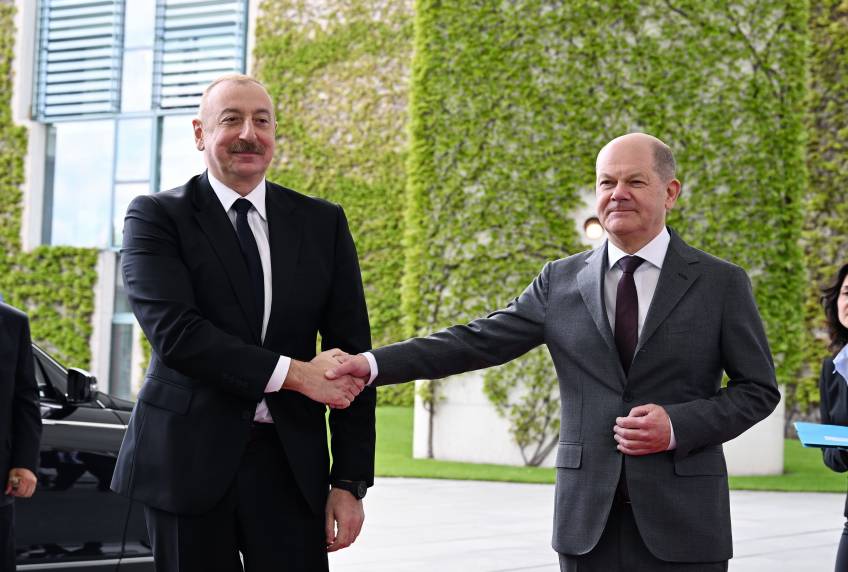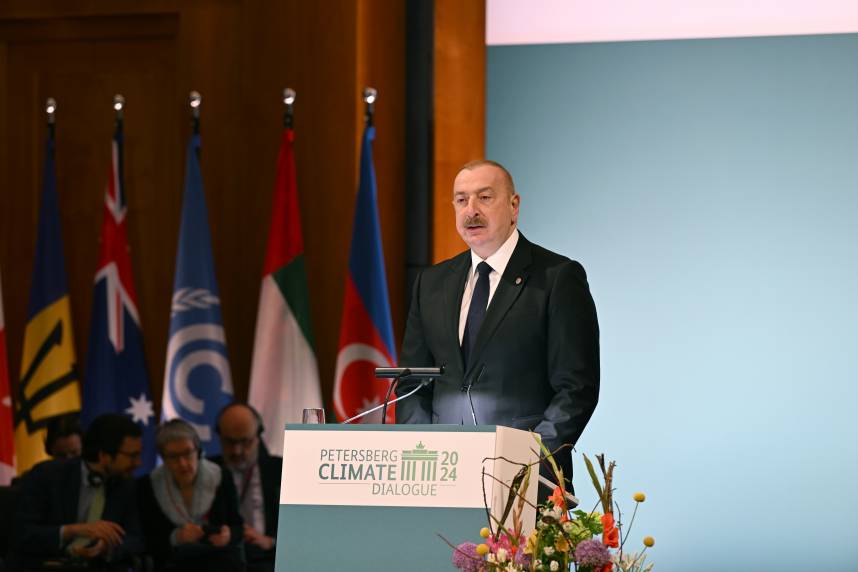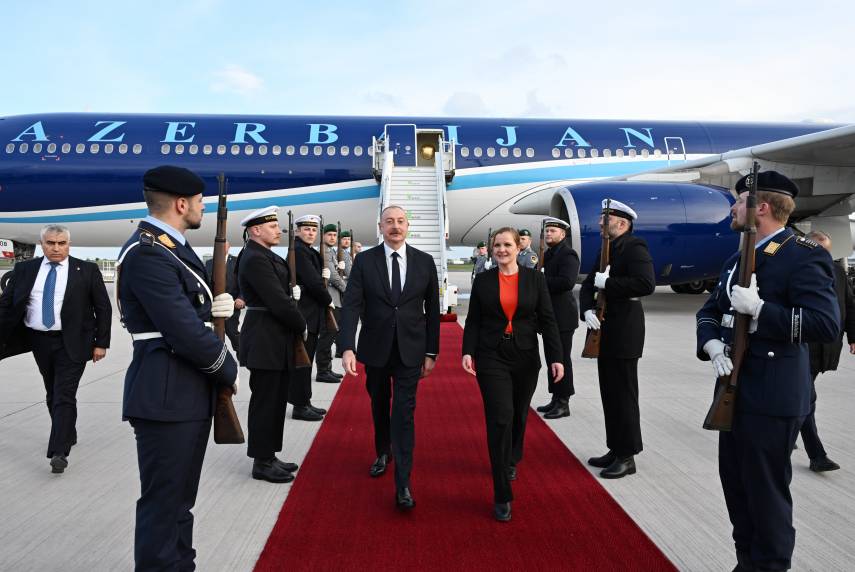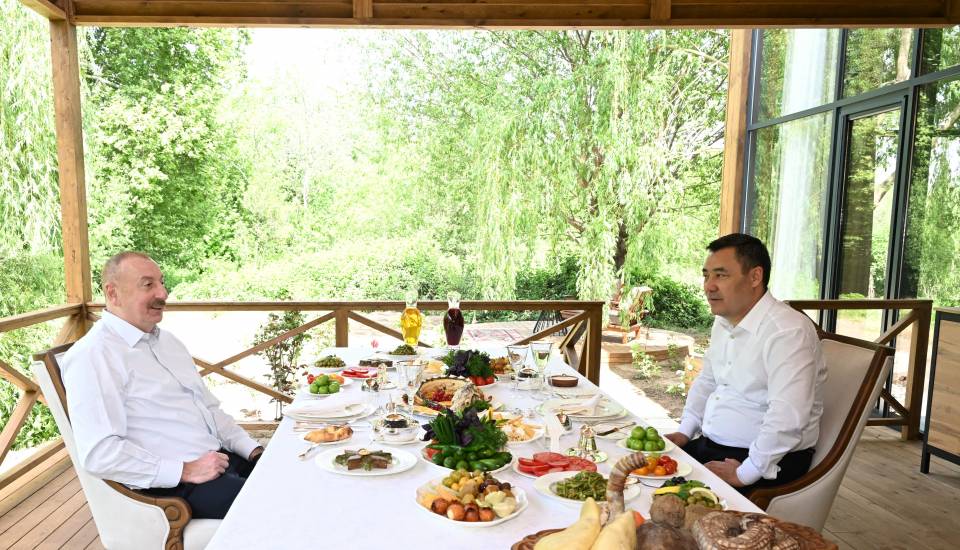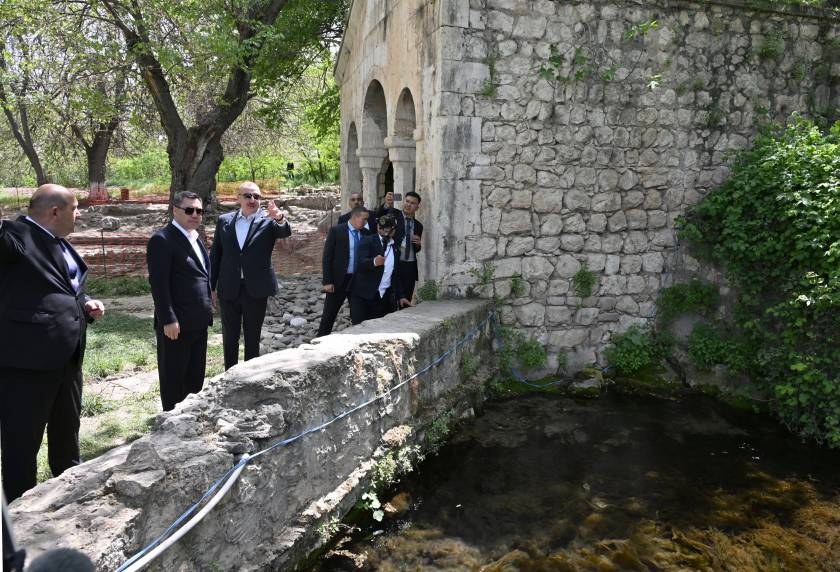20:34
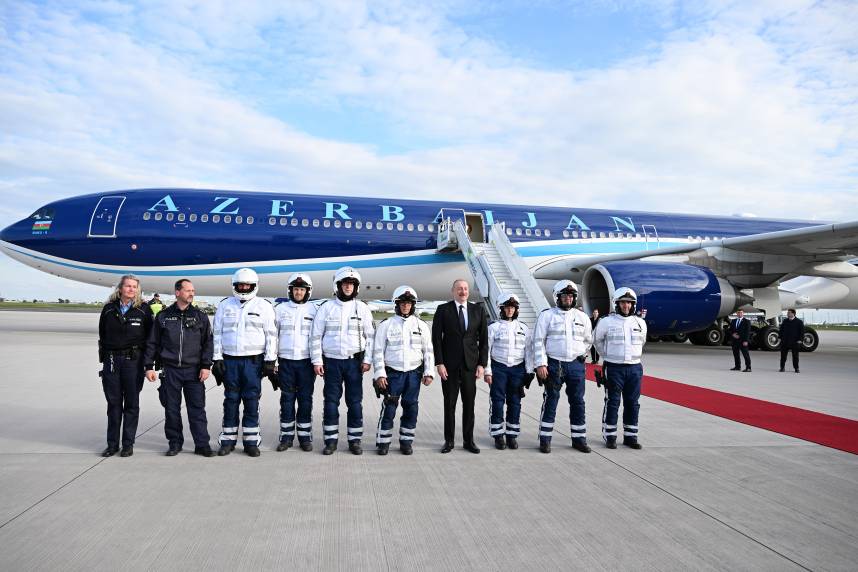
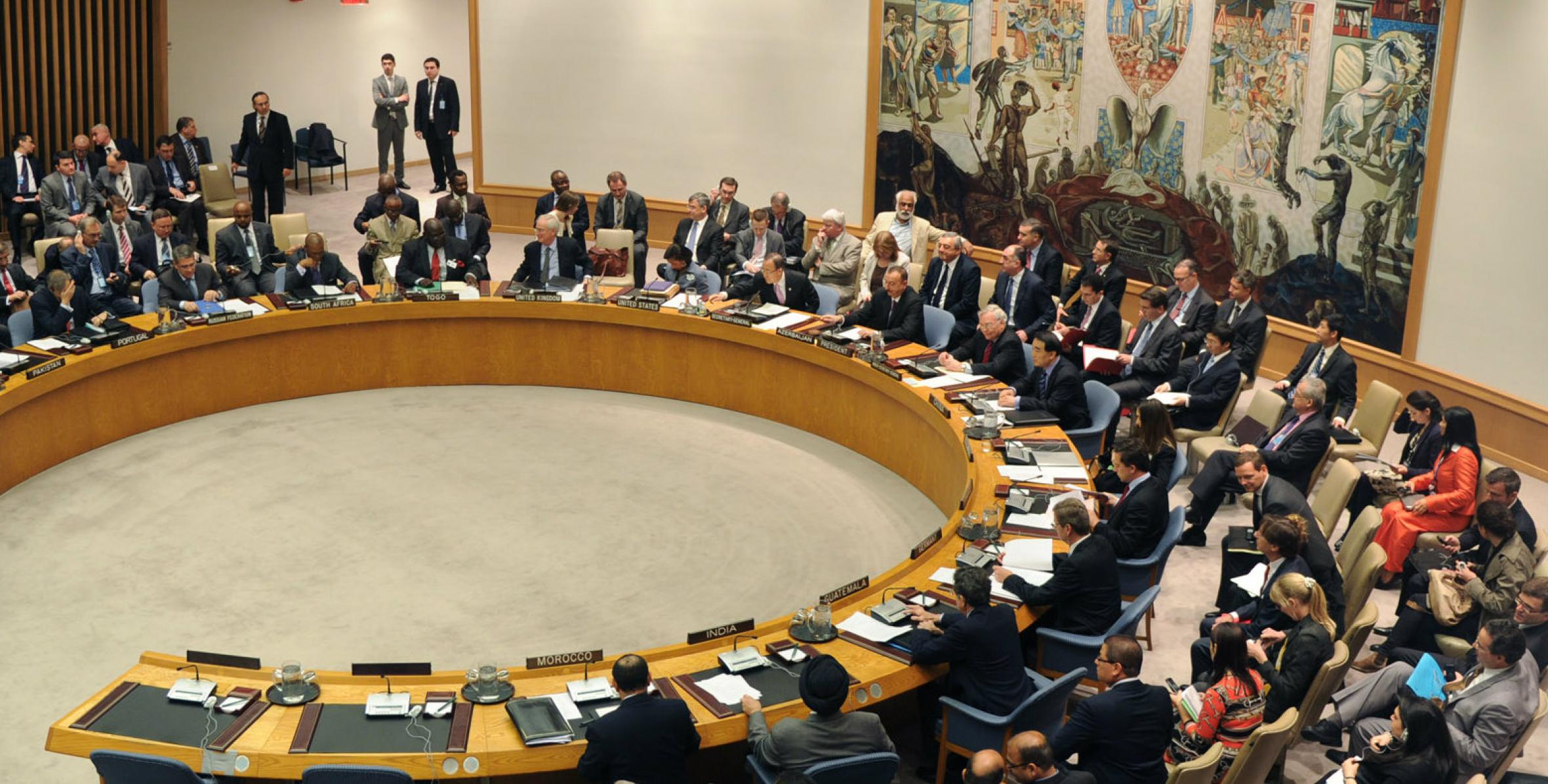
A high-level UN Security Council meeting chaired by President of the Republic of Azerbaijan Ilham Aliyev has been held in New York.
On Azerbaijan’s initiative, the meeting discussed the issue of “Threats to international peace and security posed by acts of terror”.
By becoming a nonpermanent member of the UN Security Council in October 2011, Azerbaijan attained one of its biggest foreign political successes in the 20 years of independence. Receiving the votes of 155 countries in the election and achieving historic success, Azerbaijan started to fulfill its mandate in the Security Council on 1 January 2012.
Azerbaijan’s participation alongside permanent members of the UN Security Council – the USA, China, Russia, the UK and France – in the world’s top international organization is clear evidence of international support for the path our country has chosen. It is also evidence of the importance the international community attaches to the policies pursued by President Ilham Aliyev and an expression of international confidence in our country.
President Ilham Aliyev arrived at the UN headquarters in New York to attend the high-level meeting of the Security Council.
During the UN Security Council meeting chaired by President Ilham Aliyev, the President of Azerbaijan said the subject of the meeting was “Threats to international peace and security posed by acts of terror”.
President Ilham Aliyev expressed his gratitude to UN Secretary General Ban Ki-moon for attending the meeting.
UN Secretary General Ban Ki-moon congratulated President Ilham Aliyev on Azerbaijan’s presidency in the Security Council and welcomed his chairmanship at the meeting. The UN Secretary General noted that the international community was waging a continuous fight against terror. He said terrorist organizations in various parts of the world are still a source of great threat. “The fact-finding mission sent to Libya last year revealed that terrorist organizations operating there get help from outside,” Ban Ki-moon said. He added that the main goals were to strengthen the fight against terrorism and pave the way for the protection of human rights. The UN Secretary-General stressed the need for a common concept in the fight against terror.
German Foreign Minister Guido Westerwelle congratulated the President of Azerbaijan on the occasion of presidency in the Security Council. “Our joint activities have weakened the sources of terrorism,” Guido Westerwelle said pointing to the successful results achieved in Iraq and Afghanistan in this respect.
He said Germany would always support the implementation of the UN Counter-Terrorism Strategy.
The Minister of Foreign Affairs and Cooperation of Togo, Elliott Ohin, congratulated the President of Azerbaijan on the country’s presidency in the Security Council. He said terrorism was the biggest threat to peace and security. Elliott Ohin spoke about the damage terrorist organizations have inflicted to the African continent.
A member of the Obama administration and the US Permanent Representative to the UN, Susan Rice, said the world had yet to get rid of terrorism, adding that the fight against it must be continued. Indicating that innocent people were being killed as a result of terrorist activities of “Al-Qaeda”, Susan Rice said the USA was fighting terrorism anywhere in the world. The US government receives help from its allies and friends in this regard.
Thanking President Ilham Aliyev for presidency at such an important meeting, the Minister of Foreign Affairs and Cooperation of Morocco, Youssef Amrani, said that it follows from the special importance Azerbaijan attaches to anti-terrorist operations.
The Special Representative of the Russian President for the fight against terrorism and organized crime, Alexander Zmeyevskiy, said there could be no justification for terrorism and it could only be fought through international cooperation.
The Deputy Minister of Multilateral Affairs of Colombia, Patti Londono, thanked President Ilham Aliyev for his chairmanship at such an important meeting and recalled her visit to Azerbaijan several months ago. She said the fight against terror was a priority issue for her country.
A representative of the People’s Republic of China expressed his gratitude to Azerbaijan, a country presiding in the UN Security Council in May, for the initiative to hold the high-level meeting on the issue of “Threats to international peace and security posed by acts of terror”. He praised the cooperation between Azerbaijan, which has been a member of the UN for 20 years, and the international community. The representative of China said Azerbaijan was contributing a lot this cooperation. Noting that Azerbaijan has made great efforts to protect and enforce the UN principles, the Chinese representative said his country's supports these efforts.
The representatives of Pakistan, the UK, India, the Republic of South Africa, Guatemala, France and Portugal indicated in their remarks that Azerbaijan was chairing a UN Security Council meeting for the first time in its history and expressed their congratulations on this occasion. They said terrorism, which poses a threat to international peace and security, is the biggest disaster for the world and expressed their support for UN measures in this area.
President Ilham Aliyev addressed the high-level meeting of the UN Security Council.
Remarks by President of Azerbaijan Ilham Aliyev
- And now, as President of the Republic of Azerbaijan, I will make my statement.
Terrorism poses a serious threat to international peace and security, to the promotion of human rights, fundamental freedoms and democracy, to the establishment of political independence, sovereignty, territorial integrity and, finally, to socioeconomic development of all member-states.
Azerbaijan strongly condemns all forms and manifestations of terrorism. We believe that all acts of terror acts heinous crimes which should be condemned and those guilty of them punished. We must never allow terrorists to justify their acts. No act of terror, whatever the reason, can be justified. Terrorism has a changing face and nature, in many cases it is associated with aggressive separatism, extremism and organized crime.
In places of armed conflict, particularly in territories under foreign military occupation, the conditions usually emerge for some bargains between terrorism and those who are in this space.
Azerbaijan has been subjected to terrorism in various ways. Azerbaijan has become a direct target of terrorist activities organized from the outside. The Republic of Armenia has carried out dozens of terrorist attacks against Azerbaijan’s civilian population and infrastructure. As a result, more than 2,000 Azerbaijanis have been killed.
Armenia has perpetrated these acts of terror with direct participation of its law-enforcement bodies and using international terrorist groups. During the active phase of the Armenian-Azerbaijani conflict over Nagorno-Karabakh and in order to carry out a policy of ethnic cleansing, Armenia extensively used acts of terror against the civilian population alongside military aggression. These brutal acts reached their climax with the extermination of the population of the town of Khojaly in February 1992. Then, 613 innocent people were killed, including women, children and the elderly. The Armenians killed over 100 women and 63 children. Armenia has also fought against the civilian population by committing acts of terror on public transport, in places of critical infrastructure away from the zone of military action, by planting a bombs in the Baku subway in 1994 and perpetrating other acts.
While we have mostly neutralized the terrorist threat on the part of Armenia, the risks are still high. There are still explicit statements and opinions that a number of terrorist acts, including attacks on Azerbaijan’s civilian infrastructure, such as water reservoirs, dams and a network of oil pipelines, are a legitimate military tactic. This may clearly lead to the deaths of hundreds of thousands of civilians. Elements of international terrorist organizations are integrated into Armenia’s security and defense sectors. When one sees a country trying to show commitment to European and universal values and introducing members of international terrorist organizations as heroes and erecting monuments to them, this causes a feeling of regret.
The policy of ethnic cleansing carried out against Azerbaijanis has led to the occupation of 20 per cent of our internationally recognized territory. More than a million people were driven our of their homes and became refugees and IDPs. The UN Security Council has passed four resolutions demanding a withdrawal of Armenian troops from occupied territories. But unfortunately, Armenia has been flouting these resolutions for nearly 20 years.
From the standpoint of a link among terrorism and separatism, extremism and organized crime, including drug trafficking, money laundering and arms smuggling, the occupied Azerbaijani territories are a source of great concern. In addition to the terrorist threats on the part of Armenia, Azerbaijan still faces risks and dangers posed by international terrorist groups. The proximity of our country to sensitive regions makes these threats even more imminent to us.
Azerbaijan, of course, takes extensive measures at the national level and actively contributes to international efforts to prevent terrorism.
Azerbaijan, which heralds the indivisibility of security, is an active contributor to the international anti-terror coalition.
Although the international community has made great strides in the prevention of terrorism, there is still much to do to stop and fight it. The absence of a clear definition of terrorism in international law hampers the international efforts to prosecute not only individual terrorists and terrorist organizations, but also the states encouraging and financing terrorist activities. From this standpoint, Azerbaijan stresses the importance of reaching an agreement on a comprehensive convention on international terrorism, which will be an effective tool in the fight against terrorism.
A clear definition of terrorism and the convention on international terrorism could contribute to the solution of a number of outstanding issues, including the rejection of the organization, financing, encouraging, instructing and supporting terrorist activities in other direct or indirect ways. Such an agreement should be based on an expanded and open discussion of the major causes of terrorism. To address issues of social and economic development and education, we should clearly pay the necessary attention to this area in the ongoing international efforts, including those taken through the UN. The limited opportunities of education coupled with economic difficulties can in many cases serve as factors laying the foundation for terrorist propaganda in the guise of a religious interpretation. The fight against terror cannot be used to justify attacks on a particular religion or culture. Today we are living in the conditions of limited religious awareness, and in some cases this is blown out of proportion, maliciously used to fuel conflicts on ethnic, religious and cultural grounds. Islamophobia has been at an unacceptable level in some countries in recent years, which confirms the importance of joint efforts and dialogue in the prevention of such defamatory and erroneous concepts.
Azerbaijan seeks to contribute to the dialogue of civilizations. Our country carries out many activities serving a better understanding between people of different religions. Azerbaijan is a multiethnic and multi-religious country.
Representatives of all nationalities and religions live in our country in peace and mutual understanding. The multicultural dialogue in our country can be used as an example of peaceful coexistence between people of different religions and backgrounds.
Azerbaijan is a country of tolerance and we appreciate this heritage. Today we strive to step up our efforts to create a spirit of partnership and brotherhood between all peoples and religions.
If we talk about economic development, it is the most important aspect of combating terrorism, ensuring good governance and creating better conditions for people. In the past 10 years Azerbaijan has made great progress in economic reforms. Our country’s independence is not very long. We regained our independence only 20 years ago. But these have been the years of reform, change, development and progress. In less than 10 years our economy grew threefold. Poverty has declined from 50 to 7 per cent. One million jobs have been created. Many social projects and programs are carried out. International financial institutions are praising us. Three major international organizations – Fitch, Moody's and Standard & Poor's – have recently upgraded our credit rating. This is a good development indicator, especially in the years of economic recession. Therefore, factors such as poverty reduction, creation of jobs, formation of a perfect legal framework, the rule of law, the fight against corruption, etc. serve the development of the country and mobilize its efforts in the fight against terrorism.
I am sure that we must consolidate all our efforts in the fight against terrorism. The present image of terrorism and its relation to other threats to international peace and stability require a closer cooperation between states, a more effective, coordinated, balanced and systematic approach by the UN. Also, conflicts between states, foreign military aggression and aggressive separatism create favorable conditions for terrorism. So the international community should seek to resolve conflicts on the basis of generally accepted norms and principles of international law, in particular in matters relating to the territorial integrity and inviolability of internationally recognized borders of states, assist countries in the restoration of sovereignty over their territories.
I would like to take this opportunity to thank all members of the UN for their support of Azerbaijan’s candidacy. In October last year, Azerbaijan was elected a nonpermanent member of the Security Council for the first time in its short history.
This is tremendous responsibility which we are ready to take on. Azerbaijan will defend the ideals of justice, international law and peaceful cooperation among all countries. We very much look forward to working together with regional countries. Our initiatives are aimed at enhancing regional cooperation in a spirit of friendship, partnership and good neighborliness.
We will definitely make a contribution during our presidency in the Security Council. I can assure all our friends in the UN and all member-states that Azerbaijan will become a reliable and friendly partner for all countries. We want to expand our cooperation and partnership and are very grateful for this support.
Our country has a great history, culture, customs and traditions. But we, as an independent country, are only 20 years old.
These years have been the years of change, development and promotion in the world. The support for our candidacy on the part of 155 countries is, on the one hand, evidence of the fact that we have introduced ourselves to the world. At the same time, it shows the support and confidence of the international community in us, which places a lot of responsibility on us. I can assure you that we are ready to take on this responsibility. We will live up to the confidence of those who believed in us and will do everything possible to create a more predictable and secure world for all of us. Thank you very much.
Х Х Х
Azerbaijan will be chairing the UN Security Council in May this year and in September 2013.
Azerbaijan took the baton from the United States in April and will pass it on to China a month later. During its presidency in the Security Council, our country will be determining the agenda of this structure and actively participate in the decision making process regarding global developments. As part of the Security Council agenda, Azerbaijan will table issues relating to the developments in the Middle East, Africa and the Balkans, other issues of global importance that are in the spotlight, such as peace and international security, fight against terrorism and conflict settlement.
Most importantly, Azerbaijan will keep the Nagorno-Karabakh conflict in focus as a priority matter.
